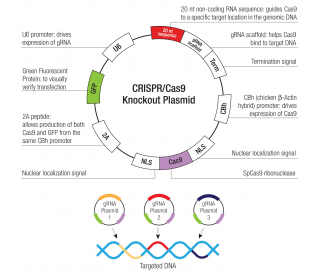Purity
>95%, by SDS-PAGE under reducing conditions and visualized by silver stain.
Endotoxin Level
<0.10 EU per 1 μg of the protein by the LAL method.
Activity
Measured in a cell proliferation assay using TF‑1 human erythroleukemic cells. Kitamura, T. et al. (1989) J. Cell Physiol. 140:323. The ED 50 for this effect is 1-3 ng/mL.
Source
E. coli-derived Lys26-Ala190, with an N-terminal Met
Accession #
N-terminal Sequence
AnalysisMet
Predicted Molecular Mass
18.5 kDa
Carrier Free
What does CF mean?
CF stands for Carrier Free (CF). We typically add Bovine Serum Albumin (BSA) as a carrier protein to our recombinant proteins. Adding a carrier protein enhances protein stability, increases shelf-life, and allows the recombinant protein to be stored at a more dilute concentration. The carrier free version does not contain BSA.
What formulation is right for me?
In general, we advise purchasing the recombinant protein with BSA for use in cell or tissue culture, or as an ELISA standard. In contrast, the carrier free protein is recommended for applications, in which the presence of BSA could interfere.
2278-SC |
| 2278-SC/CF |
Formulation Lyophilized from a 0.2 μm filtered solution in PBS with BSA as a carrier protein. | Formulation Lyophilized from a 0.2 μm filtered solution in PBS. | |
Reconstitution Reconstitute at 100 μg/mL in sterile PBS containing at least 0.1% human or bovine serum albumin. | Reconstitution Reconstitute at 100 μg/mL in sterile PBS. | |
Shipping The product is shipped at ambient temperature. Upon receipt, store it immediately at the temperature recommended below. | Shipping The product is shipped at ambient temperature. Upon receipt, store it immediately at the temperature recommended below. | |
Stability & Storage: Use a manual defrost freezer and avoid repeated freeze-thaw cycles.
| Stability & Storage: Use a manual defrost freezer and avoid repeated freeze-thaw cycles.
|
Background: SCF/c-kit Ligand
Canine SCF (stem cell factor; also known as c-kit ligand) is a type I transmembrane (TM) glycoprotein that plays an important role in a number of fetal and adult developmental processes (1-4). It is synthesized as a 274 amino acid (aa) precursor that contains a 25 aa signal sequence, a 190 aa extracellular region, a 23 aa TM segment and a 36 aa cytoplasmic tail (5). Within the extracellular region there are four potential N-linked glycosylation sites, two intrachain disulfide bonds, and four
alpha -helices. Although the predicted molecular weight is 19 kDa, the native molecule is anywhere from 28-40 kDa in size and reflects both N- and O-linked glycosylation (1). Glycosylation is not necessary for bioactivity (6). The transmembrane form of SCF can be cleaved proteolytically, generating a 165 aa soluble form. Circulating SCF exists as both a monomer and nondisulfide-linked homodimer, with monomer predominating (50% to 75%) (6). Both the soluble and TM forms have bioactivity. Their principal targets may be different, however (7). A second, alternate splice short form of SCF has been identified in other species (1). It is membrane bound but lacks the proteolytic cleavage site found in the long form. Thus, it cannot give rise to a soluble molecule. No such isoform has been reported for canine, but it could be assumed to exist. The ratio of long form to short form varies from tissue to tissue (1). Soluble canine SCF shares 88%, 93%, 86%, 83%, 76%, 76%, 86% and 88% aa sequence identity with porcine, feline, bovine, human, mouse, rat, goat and equine SCF, respectively. Cells known to express SCF include endothelial cells, fibroblasts and keratinocytes (1).
References:
Broudy, V.C. (1997) Blood 90:1345.
Nakagawa, S. and T. Kitoh (2000) Curr. Opin. Hematol. 7:133.
Yoshida, H. et al. (2001) J. Invest. Dermatol. Symp. Proc. 6:1.
Kang, J. and S.D. Der (2004) Curr. Opin. Immunol. 16:180.
Dunham, S.P. and D.E. Onions (1996) DNA Seq. 6:233.
Hsu, Y-R. et al. (1997) J. Biol. Chem. 272:6406.
Kapur, R. et al. (1998) Blood 91:879.
Long Name:
Stem Cell Factor
Entrez Gene IDs:
4254 (Human); 17311 (Mouse); 60427 (Rat); 403507 (Canine); 493937 (Feline)
Alternate Names:
c-kit Ligand; DKFZp686F2250; familial progressive hyperpigmentation 2; FPH2; KIT ligand; Kitl; KITLG; KL-1; Mast cell growth factor; MGF; MGFSHEP7; SCF; SCFStem cell factor; SFc-Kit ligand; SLF; steel factor










